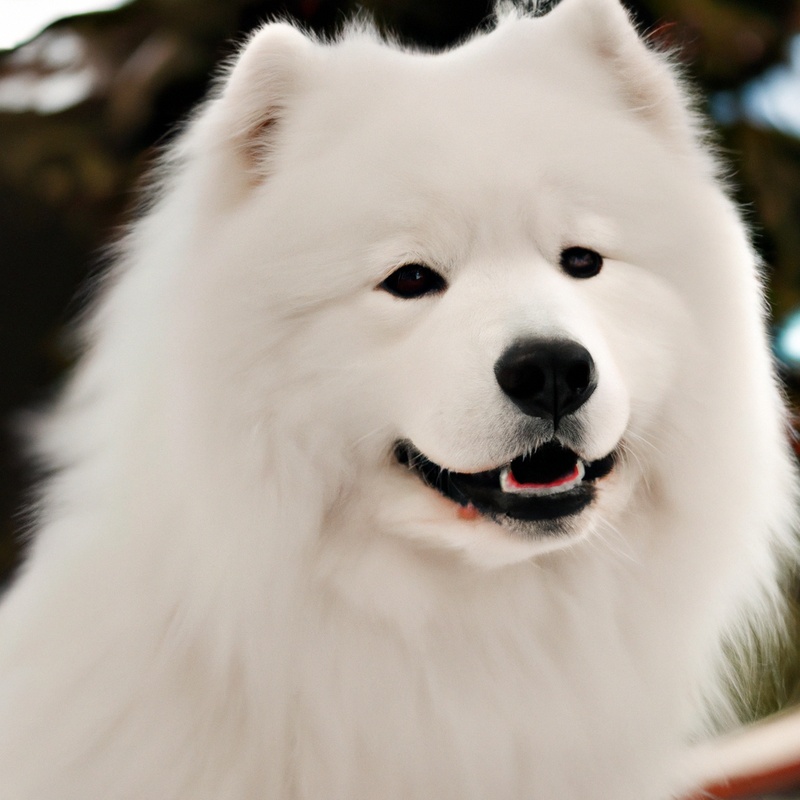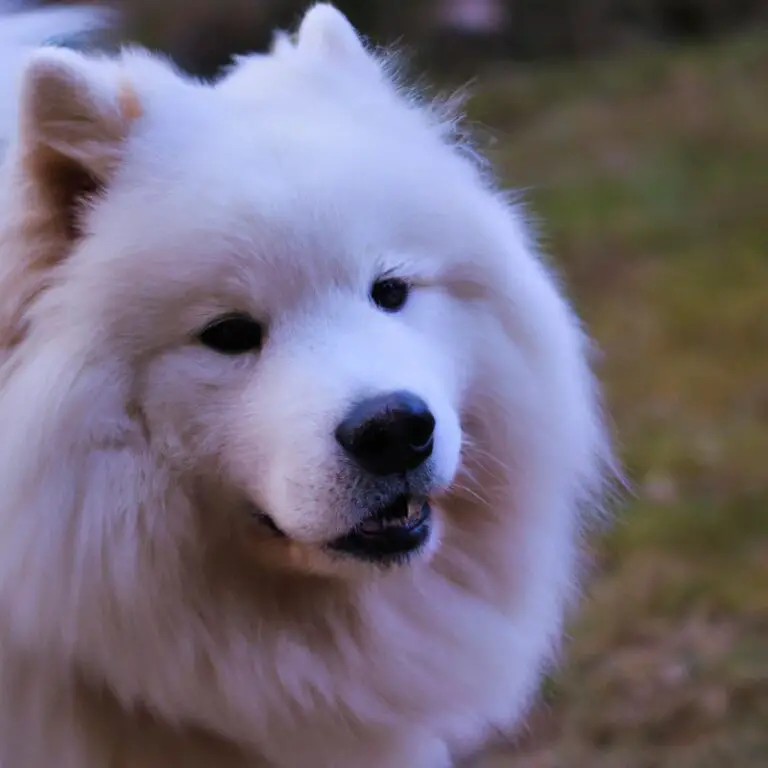Can Samoyeds Be Trained For Obedience Trials?
Key Takeaways:
- Yes, Samoyeds can be trained for obedience trials.
- Positive reinforcement techniques work well in training Samoyeds for obedience trials.
- Consistency and patience are key when training Samoyeds for obedience trials.
- It is important to start training Samoyeds for obedience trials at a young age.
Are you a proud Samoyed owner looking to showcase your fluffy companion’s skills in obedience trials?
Curious about whether Samoyeds have what it takes to excel in these competitions?
Well, you’ve come to the right place! As an expert in dog training and behavior, I can assure you that Samoyeds can indeed be trained for obedience trials.
With their intelligent and adaptable nature, these friendly and affectionate dogs are more than capable of mastering the skills and commands required for success in the ring.
So, let’s dive into the world of training Samoyeds and prepare your furry friend for the challenge ahead!
| Question | Answer |
|---|---|
| Can Samoyeds be trained for obedience trials? | Yes |
| Trainability | Samoyeds are intelligent and trainable dogs |
| Pros | 1. Samoyeds are eager to please and enjoy learning new commands 2. They are highly adaptable and can perform well in various obedience exercises 3. Samoyeds have a friendly and gentle nature, making them suitable for obedience trials |
| Cons | 1. Samoyeds are independent thinkers and might occasionally display stubbornness during training 2. They have a high energy level and need regular exercise to stay focused and engaged 3. Their thick double coat requires regular grooming and can make training sessions challenging in hot weather |
Overview of Samoyeds as a Breed
Brief history and characteristics of Samoyeds
Samoyeds have a rich history as working dogs for the Samoyede people in Siberia.
These dogs were bred to pull sleds, herd reindeer, and keep their owners warm with their thick, double coats.
Samoyeds are known for their friendly and gentle nature, making them excellent family pets.
They are highly adaptable and love being around people.
With their intelligence and willingness to please, Samoyeds can excel in obedience trials with proper training and consistent positive reinforcement.
Their cheerful and playful personalities make them a joy to train and be around.
Common temperament traits of Samoyeds
Samoyeds are known for their friendly and gentle nature.
They are sociable dogs that love to be around people and other animals.
One common temperament trait of Samoyeds is their high level of friendliness.
They are often described as being good-natured and affectionate.
Additionally, Samoyeds are known for being playful and energetic, making them great companions for active individuals or families.
They are also intelligent and eager to please, which can make training them easier.
However, it’s important to note that each Samoyed is unique and may have their own personality quirks.

Training Samoyeds for Obedience Trials
Importance of training for obedience trials
Training is essential for obedience trials as it helps Samoyeds understand and follow commands, improving their performance. Effective training enhances their focus, responsiveness, and ability to stay calm in distracting environments.
By reinforcing desirable behaviors and discouraging unwanted ones, training ensures better communication between you and your Samoyed during the trials.
Additionally, it builds a stronger bond between you and your furry friend, making the experience enjoyable for both of you. Overall, training plays a vital role in preparing Samoyeds for obedience trials and increasing their chances of success.

Samoyed-specific challenges in training
Training Samoyeds can be a delightful but challenging task.
One specific challenge is their independent nature.
Samoyeds are known for their strong will, which can make them stubborn during training sessions.
Another challenge is their high energy levels.
They require regular exercise to prevent boredom and destructive behaviors.
Additionally, Samoyeds have a tendency to be vocal, so teaching them to control their barking can be a challenge.
Patience, consistency, and positive reinforcement are key when training Samoyeds.
Selecting the right training methods for Samoyeds
Selecting the right training methods for Samoyeds is essential for their success in obedience trials.
Start with positive reinforcement techniques, such as rewards and praise.
Use consistency and patience when teaching commands like sit, stay, and come.
Incorporate clicker training for clear communication.
Avoid harsh punishment methods, as they can damage the bond with your Samoyed.
Seek guidance from experienced trainers who understand the breed’s unique characteristics.
Adapt the training to fit your Samoyed’s individual personality and learning style.
Remember to keep the training sessions short and enjoyable for both you and your furry friend.
Basic Training for Samoyeds
Foundation commands every Samoyed should learn
Foundation commands every Samoyed should learn:
- Sit: Teach your Samoyed to sit on command. This command is essential for maintaining control and ensuring your dog’s safety in various situations.
- Stay: Train your Samoyed to stay in one place until released. This command is crucial for preventing your dog from running off or getting into dangerous situations.
- Come: Teach your Samoyed to come to you when called. This command is important for recall, especially when your dog is off-leash or in an unfamiliar environment.
- Lie Down: Train your Samoyed to lie down on command. This command can be useful in situations where you need your dog to remain calm or stay in a specific position.
- Leave It: Teach your Samoyed to ignore or let go of something they’re interested in. This command is crucial for preventing your dog from picking up harmful objects or getting into trouble.
- Heel: Train your Samoyed to walk beside you on a loose leash. This command is essential for polite walking and maintaining control during walks.
Remember, consistency and positive reinforcement are key when training your Samoyed. Start with these foundation commands, and gradually build on them as your dog progresses in their training.
Happy training!
Positive reinforcement techniques for Samoyeds
Positive reinforcement techniques are highly effective when training Samoyeds. Use treats, praise, and affection to reward desired behaviors such as sitting, staying, and coming when called.
Be consistent and clear with your commands, and always reward your Samoyed immediately after they perform the desired behavior.
Avoid punishment or harsh training methods, as they can damage the bond between you and your dog. Patience, consistency, and positive reinforcement will lead to successful training sessions and a well-behaved Samoyed.

Crate training and housebreaking for Samoyeds
Crate training and housebreaking are important for Samoyeds. Start by introducing them to the crate gradually, making it a positive and comfortable space.
Use treats and toys to create a positive association.
Take them outside frequently, especially after meals, naps, or playtime. Reward them when they eliminate outside.
Be consistent with training and establish a routine.
Avoid punishment as it can create fear and confusion. With patience and consistency, your Samoyed will become well-behaved and housebroken.
Advanced Training for Samoyeds
Teaching advanced obedience commands
Teaching advanced obedience commands to your Samoyed can be a rewarding experience.
Start with building a strong foundation of basic commands like sit, stay, and come.
Then, gradually introduce more complex commands like heel, leave it, and drop it.
Use positive reinforcement techniques, such as treats and praise, to motivate your Samoyed and make the training sessions fun.
Break down each command into smaller steps and practice regularly in short, focused sessions.
Consistency and patience are key, so be sure to stay committed to the training process.
With time and dedication, your Samoyed can master advanced obedience commands!
Preparing Samoyeds for obedience trial exercises
Preparing Samoyeds for obedience trial exercises requires consistency and positive reinforcement. Begin with basic commands like sit, stay, and come, gradually increasing difficulty.
Incorporate distractions to simulate trial environments.
Engage in regular training sessions to build endurance and mental focus. Use tasty treats and praise as rewards.
Practice proper leash manners and heel walking.
Gradually introduce obedience trial exercises and simulate trial scenarios at home before participating in actual trials. Remember to stay patient and consistent throughout the training process.
Improve focus and attention in Samoyeds
Improving focus and attention in Samoyeds is essential for effective training. Here are a few tips:
- Start with short training sessions: Samoyeds can get easily distracted, so keeping training sessions brief and focused will help them stay engaged.
- Use positive reinforcement: Rewarding good behavior with treats or praise will encourage your Samoyed to pay attention and stay focused on your commands.
- Incorporate mental stimulation: Engage your Samoyed’s mind with puzzle toys or obedience games. This will challenge their focus and improve their attention span.
- Be consistent: Consistency is key when training a Samoyed. Stick to a regular schedule and use consistent cues to help them understand what you expect from them.
- Gradually increase distractions: Once your Samoyed has mastered basic commands, gradually introduce distractions during training sessions. This will teach them to stay focused even when there are distractions around.
Remember, each Samoyed is unique, so be patient and adapt your training techniques to suit their individual needs. With time and consistent effort, you can improve your Samoyed’s focus and attention abilities.
Tips for Obedience Trials with Samoyeds
Building a strong bond with your Samoyed
Building a strong bond with your Samoyed is key to a successful obedience trial experience.
Here are some tips to help you foster that connection:
- Spend quality time together: Make sure to prioritize one-on-one time with your Samoyed. Engage in activities like walks, playtime, and training sessions.
- Use positive reinforcement: Reward your Samoyed with treats, praise, and affection when they exhibit desired behaviors. This will help them associate training with positivity.
- Consistency is key: Be consistent with your training methods, cues, and rules. Samoyeds thrive in a structured environment, so establish clear boundaries and reinforce them consistently.
- Be patient and understanding: Remember that building a bond takes time. Patience, empathy, and understanding are essential when working with your Samoyed.
- Communication is crucial: Learn to understand your Samoyed’s body language and signals. This will help you anticipate their needs and strengthen your bond.
- Make training fun: Incorporate games and interactive activities into your training sessions to keep your Samoyed engaged and motivated.
- Establish trust: Build trust with your Samoyed by being a reliable and consistent caregiver. Provide them with a safe and nurturing environment.
Preparing for the trial environment
Preparing for the trial environment is essential for success in obedience trials with Samoyeds. Here are some tips to get you ready:
- Familiarize your Samoyed with different environments: Take your dog to various locations to expose them to different sights, sounds, and distractions.
- Practice focus and attention: Train your Samoyed to maintain focus on you, even in the presence of distractions. Use commands and rewards to reinforce good behavior.
- Socialize your Samoyed: Introduce them to different dogs, people, and situations to help them become comfortable and confident.
- Replicate trial conditions: Set up mock trials at home or in training sessions to familiarize your Samoyed with the specific routines and expectations of competition.
- Practice obedience commands: Ensure your Samoyed is well-versed in basic commands, such as sit, stay, and heel. Work on refining their skills and responsiveness.
- Build endurance: Obedience trials can be physically demanding for your Samoyed. Gradually increase the duration and intensity of training sessions to improve their stamina.
- Remain calm and positive: Your Samoyed will pick up on your energy and emotions. Stay positive and reward their efforts to create a supportive and enjoyable training environment.
Tips for avoiding distractions during the trial
During obedience trials with your Samoyed, it’s important to minimize distractions to enhance focus and performance.
Here are some tips:
- Find a quiet and controlled environment for practice sessions.
- Start with basic commands and gradually increase the difficulty level.
- Use positive reinforcement techniques to motivate and reward your Samoyed.
- Teach your dog to maintain eye contact with you, even in the presence of distractions.
- Practice obedience exercises in different locations to build resilience.
- Gradually expose your Samoyed to distractions, starting with mild ones and gradually increasing the intensity.
- Ensure your dog receives regular exercise and mental stimulation to reduce excess energy.
- Use commands and hand signals consistently during training to minimize confusion.
- Maintain a calm and confident demeanor during the trial to help keep your Samoyed focused.
- Remember, patience and consistency are key in training your Samoyed for obedience trials.
Frequently Asked Questions
Can all Samoyeds be trained for obedience trials?
Training Samoyeds for obedience trials can be challenging, as not all Samoyeds are naturally inclined towards obedience.
While some may excel in obedience training and perform well in trials, others may struggle to meet the specific criteria.
It’s important to remember that each Samoyed is an individual with their own unique temperament and personality.
While training can certainly help improve their obedience skills, not all Samoyeds may possess the necessary drive or focus required for success in obedience trials.
What age should I start training my Samoyed for obedience trials?
You should start training your Samoyed for obedience trials at a young age.
It’s best to begin training when they are around 6 to 8 weeks old.
This is a critical period for socialization and learning, and it’s easier to establish good habits and behaviors early on.
Start with basic commands such as sit, stay, and come, and gradually progress to more advanced tasks as your Samoyed grows and develops.
Consistency, positive reinforcement, and patience are key to successful training.
How long does it take to train a Samoyed for obedience trials?
Training a Samoyed for obedience trials can take anywhere from several weeks to several months, depending on various factors.
The length of time it takes to train a Samoyed for obedience trials can depend on the dog’s individual temperament, previous training experience, and the consistency and dedication of the trainer.
Additionally, the complexity of the obedience skills required for the specific trial can also impact the training timeline.
Regular practice, positive reinforcement, and patience are key in training a Samoyed for obedience trials.
Final Verdict
Samoyeds can absolutely be trained for obedience trials, but it requires dedication, patience, and the right training techniques.
These beautiful and intelligent dogs have a natural desire to please their owners, making them trainable for various tasks.
However, their independent nature and tendency to get easily distracted can present challenges in training.
By starting early, using positive reinforcement techniques, and focusing on building a strong bond, Samoyeds can excel in obedience trials.
With consistency and practice, these dogs can become obedient and well-behaved companions.
So, if you’re willing to put in the effort, Samoyeds can certainly be successful in obedience trials.








